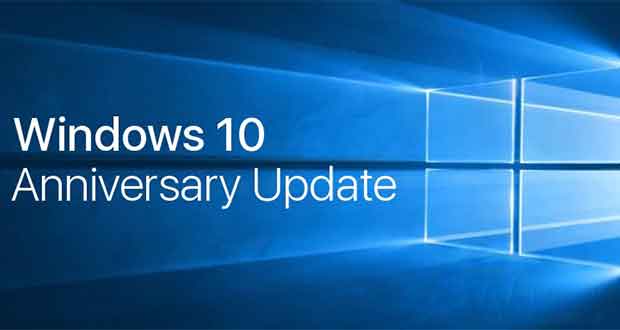Microsoft vient de publier une nouvelle mise à jour cumulative pour son système d’exploitation Windows 10. Proposée en dehors du Patch Tuesday, elle s’attaque à la correction de bugs et à la fiabilité. Il n’y a pas de correctif de sécurité.
KB4051033 s’adresse aux PC sous Windows 10 Anniversary Update. Son installation permet de résoudre plusieurs problèmes rencontrés après l’installation de précédents Update.
Par exemple Microsoft apporte un correctif à services.exe qui depuis l’installation de la mise à jour KB3175027 est défaillant. Au fil du temps un bug entraine une dégradation des performances du système en particulier autour de l’implémentation de Terminal Server.
En parallèle un correctif s’attaque à un souci avec certaines imprimantes Epson Dot Matrix. Ce problème a été signalé après le déploiement de la mise à jour cumulative KB4048953. Le géant a proposé il y a quelques jours un update pour Creators Update.

Windows 10 et KB4051033, 2 problèmes connus
KB4051033 est proposé au travers du service Windows Update. Pour le moment son installation semble rencontrer aucune difficulté. Microsoft indique cependant que deux bugs connus et non résolus sont de la partie.
Le navigateur Internet Explorer peut rencontrer des problèmes avec le service SQL Server Reporting (barre de défilement problématique avec un menu déroulant). Enfin après l’installation de cette mise à jour, certains utilisateurs peuvent obtenir une erreur “CDPUserSvc_XXXX a cessé de fonctionner”.
Le géant indique qu’il travaille sur un correctif.
KB4051033, note de version
- Addressed issue where screen tearing and scrambled content appear in applications when a computer is connected to three or more USB 3.0 display devices. This occurs when you change the content on one or more of the connected display devices.
- Addressed issue where a service fails to start when two or more services are using the same built-in account (such as NetworkService or LocalService). When this issue occurs, the failing service reports the error, “The service did not start due to a logon failure”, or, “A specified logon session does not exist. It may already have been terminated.”
- Addressed issue where scheduled tasks with stored credentials fail to run when Credential Guard is enabled. The task fails and reports event ID 104 with the following message: “Task Scheduler failed to log on ‘\Test’ . Failure occurred in ‘LogonUserExEx’ . User Action: Ensure the credentials for the task are correctly specified. Additional Data: Error Value: 2147943726. 2147943726 : ERROR_LOGON_FAILURE (The user name or password is incorrect).”
- Addressed issue where, during BitLocker decryption or encryption of a drive, files protected with the Encrypting File System (EFS) may become corrupted.
- Addressed issue where opening Microsoft Office files from a file server that has Windows Information Protection enabled fails with the error, “Sorry we couldn’t open document xxxx”.
- Addressed issue where a Storage Spaces Direct (S2D) drive that is failing or being removed from a node is incorrectly reported as healthy in admin tools. These tools include Get-Physical Disk, Server Manager, and Failover Cluster Manager.
- Addressed issue where a repair job could be suspended indefinitely after re-adding a node to an S2D cluster.
- Addressed issue where an incomplete Storage Spaces repair could lead to faulty metadata causing future repairs to stop working.
- Addressed issue in the Network Flyout where closing the sign-in dialog unexpectedly (e.g., clicking outside the window) prevents additional sign-in dialogs from appearing when the user tries to connect to the same network.
- Addressed a token leak in services.exe that occurs after applying MS16-111/KB3175027. This results in a kernel session object leak that degrades system performance over time. This especially affects Terminal Server implementations, where more user logons typically occur.
- Addressed an AppProxy issue that could prevent mobile devices from connecting to a network.
- Addressed issue where the Remote Desktop clipboard redirection policy doesn’t take effect if reconnecting to an existing session and the policy has changed between the initial connection and reconnecting to the session.
- Addressed issue where in a non-English language environment, the OEM OOBE process cannot finish when building a failover cluster. This process fails with the error message, “No integration component with the given name could be found.”
- Improved performance when querying the file system formats of Direct-Access Storage Devices.
- Addressed issue associated with the clustering health policy for handling unresponsive clustered drives. By default, drives are retired for unresponsive conditions. The frequency of unresponsive reset remediation is too aggressive.
- Addressed issue in the Network Flyout where closing the sign-in dialog unexpectedly (e.g., clicking outside the window) prevents further sign-in dialogs from appearing when the user tries to connect to the same network.
- Improved performance when launching applications that use Virtual Disk Service to manage volumes.
- Addressed issue that impacted some Epson SIDM (Dot Matrix) and TM (POS) printers, which were failing to print on x86 and x64-based systems. This issue affects KB4048953.
